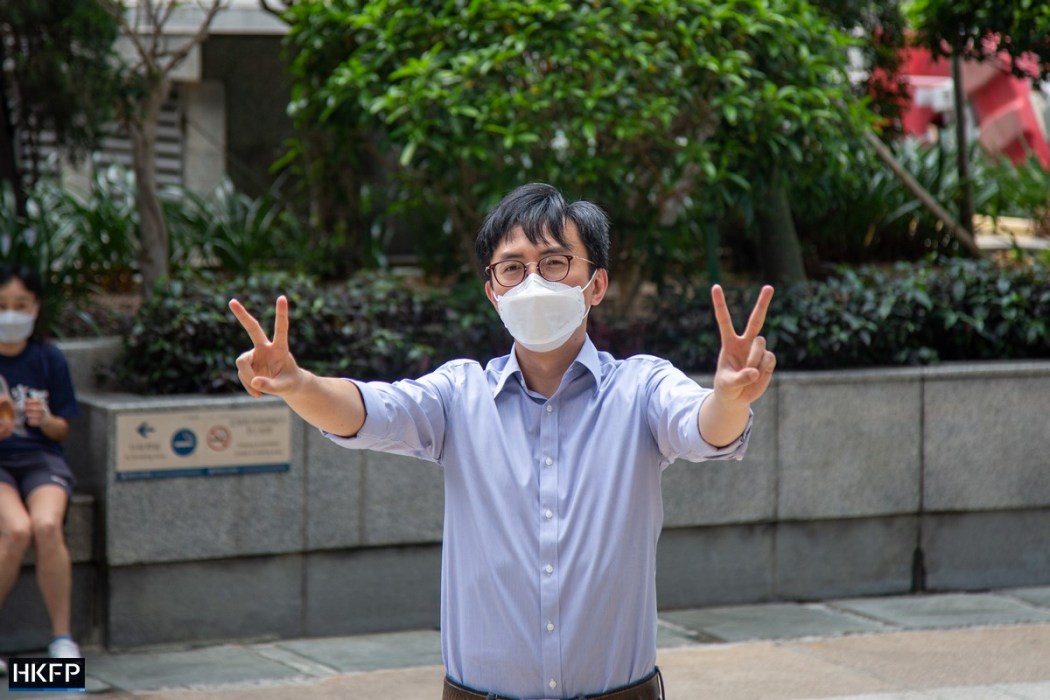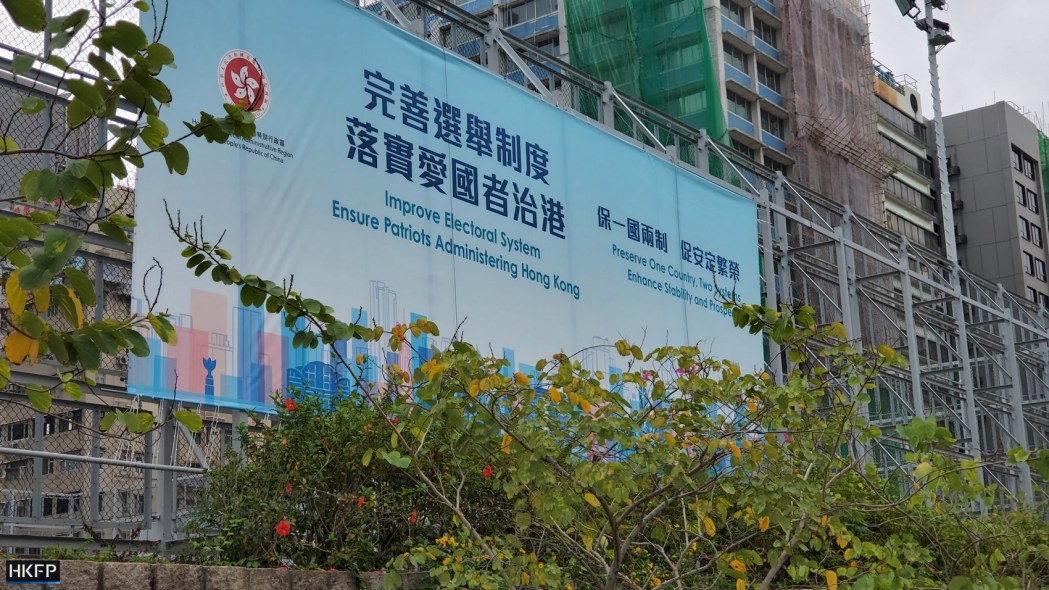The ravages of the national security law, oath-taking diktats, jailings and heavily restructured elections have left Hong Kong’s pro-democracy opposition camp in ruins. With its key members either in jail, in exile or out of politics due to the hostility of the environment, HKFP takes a look at where the major parties now stand, and the future hurdles they may face.
The Democratic Party
As the largest opposition party in the city, the Democratic Party has seen at least eight of its former chairs and deputy chairs charged, in custody or prison, including founding chairperson Martin Lee, who received a jail sentence of 11 months, suspended for 24 months for organising and participating in an unauthorised assembly in 2019.
Lo Kin-hei, the party’s incumbent chairperson, is also facing prosecution.
Following Beijing’s decision to impose drastic overhaul to the city’s election system, the Democratic Party faces a dilemma as they decide whether to run in future elections. They have yet to make a commitment, though it appears Beijing may want them to run.

Former chairperson Emily Lau is adamant about not running, and says that it would be “political suicide” if the party joins the polls against the public’s wishes.
On the other hand, veteran politician and member of the party Fred Li has been persuading the Democratic Party to run candidates in order to maintain its position as a political party.
The Civic Party
The Civic Party has been hard-hit. Three of the four lawmakers disqualified by the government in November last year were members of the party.
At least seven district councillors have resigned from the party since March, and four former members have been charged under the national security law, Alvin Yeung, Kwok Ka-ki, Jeremy Tam and Shun Lee, wrote an open letter calling for the party to be disbanded, saying that the Civic Party “has completed its historical mission.“

The party has yet to declare whether it will run candidates in future elections.
The Neo Democrats
The Neo Democrats are another party who have suffered mass resignations after at least four of its district councillors left its ranks.

Gary Fan, founding member and the party’s first lawmaker, announced that he had resigned from Neo Democrats and quit politics after he was remanded in custody, accused of conspiring to commit subversion.
‘Radical democrats’
Previously seen as the “radicals” in the Legislative Council, League of Social Democrats and People Power have seen the majority of their most prominent members remanded in custody or sentenced to prison.
Apart from its chair, Raphael Wong, who is on bail facing multiple charges, both the League of Social Democrats’ deputy chairpersons Jimmy Sham and “Long Hair” Leung Kwok-hung, plus secretary general Avery Ng are in jail or in custody pending trial.

Meanwhile, People Power’s chair Raymond Chan has been remanded in custody since February, and deputy chair Tam Tak-chi is also being held after he was arrested by the national security police in September last year for “uttering seditious words.”
National security
Beijing imposed a sweeping national security law onto the city’s mini constitution in June last year. The new law criminalised subversion, secession, colluding with foreign forces and terrorist acts, which were broadly defined to include disruption to public transport and other infrastructure.
Demosisto, a political party founded in 2016 by activists Joshua Wong, Agnes Chow, Nathan Law, was disbanded on the first day after the national security law was enacted following multiple resignations from its ranks.

Some activists who were not locked up have also left the city, including self-exiled former lawmakers Nathan Law and Ted Hui. Hong Kong’s Secretary for Security John Lee had said that the government would pursue fugitive offenders as long as they live.
Politicians facing national security law charges have also announced that they were quitting politics. Chan, Fan, Yeung, Kwok, Tam, and Eddie Chu were among the former legislators who have announced that they would not participate in any future elections or campaigning events.
Oath taking
Apart from the national security law, the newly passed oath-taking bill adds another requirement for pro-democracy figures hoping to stay in politics. Under the amendment that was passed earlier in May, district councillors will be the latest group asked to pledge their allegiance to the government and vow to uphold the Basic Law.
While close to a dozen district councillors, such as Jacky Lai, Carmen Lau and Yuen Ho-lun, have resigned after refusing to take the oath, some others, such as the remaining Neo Democrats district councillors, planned to comply with the new requirement.

Those who refuse to take an oath will be disqualified, yet even those who comply may not guarantee their seats.
Under the new law, the secretary for justice may bring proceedings against a legislator or district councillor at any time during their term if he or she is suspected of contravening the oath.
The pro-democracy camp won 388 out of 479 seats in the 2019 District Council elections in a major blow to the pro-Beijing camp, and currently control 17 of the 18 councils.
Election revamp
After the national security law and the oath-taking requirement, the pro-democracy camp faces yet another hurdle: an overhauled electoral system.
Beijing passed legislation to ensure “patriots” govern Hong Kong in March. The move reduces the number of seats in the legislature which are democratically elected by the public, and introduces a vetting committee to pre-approve potential candidates.

The Hong Kong government said the overhaul would ensure the city’s stability and prosperity. But the changes also prompted international condemnation, as it makes it near-impossible for pro-democracy candidates to stand.
Should a democrat decide to run, they would essentially be inviting the national security police to vet their previous conduct. Not only can the police provide background check results to the vetting committee, officers can also prosecute potential candidates if they find any violations against the national security law.
Support HKFP | Policies & Ethics | Error/typo? | Contact Us | Newsletter | Transparency & Annual Report | Apps
Help safeguard press freedom & keep HKFP free for all readers by supporting our team

























